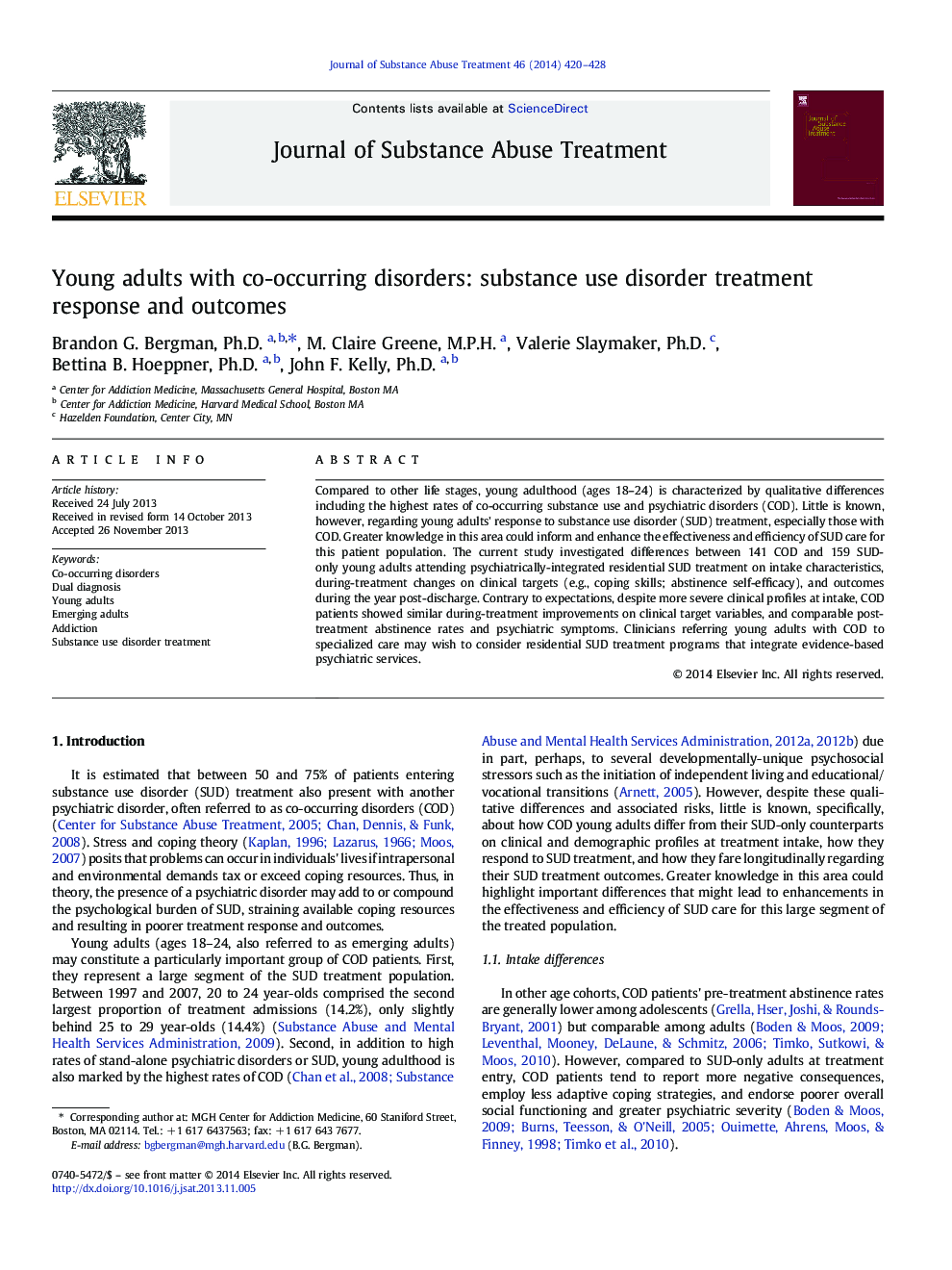| Article ID | Journal | Published Year | Pages | File Type |
|---|---|---|---|---|
| 10302682 | Journal of Substance Abuse Treatment | 2014 | 9 Pages |
Abstract
Compared to other life stages, young adulthood (ages 18-24) is characterized by qualitative differences including the highest rates of co-occurring substance use and psychiatric disorders (COD). Little is known, however, regarding young adults' response to substance use disorder (SUD) treatment, especially those with COD. Greater knowledge in this area could inform and enhance the effectiveness and efficiency of SUD care for this patient population. The current study investigated differences between 141 COD and 159 SUD-only young adults attending psychiatrically-integrated residential SUD treatment on intake characteristics, during-treatment changes on clinical targets (e.g., coping skills; abstinence self-efficacy), and outcomes during the year post-discharge. Contrary to expectations, despite more severe clinical profiles at intake, COD patients showed similar during-treatment improvements on clinical target variables, and comparable post-treatment abstinence rates and psychiatric symptoms. Clinicians referring young adults with COD to specialized care may wish to consider residential SUD treatment programs that integrate evidence-based psychiatric services.
Keywords
Related Topics
Life Sciences
Neuroscience
Biological Psychiatry
Authors
Brandon G. Ph.D., M. Claire M.P.H., Valerie Ph.D., Bettina B. Ph.D., John F. Ph.D.,
